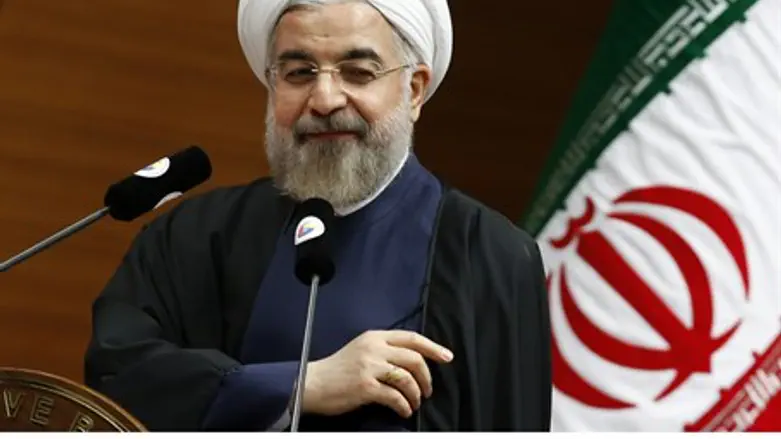
It seems incongruous in Iran, where politicians chant "Death to Israel" and the Israeli flag is often burned, but a new memorial in Tehran is bringing recognition to the country's "Jewish martyrs."
The memorial has been raised in the three-hectare (eight-acre) Jewish cemetery in south Tehran - a striking reminder of a minority faith whose more than 1,000-year heritage in Iran dwarfs the comparably short 35 years of the Islamic republic.
For leaders of Iran's small Jewish community, the memorial is a welcome sign of openness from authorities despite continued concerns over discrimination.
"When someone looks at this monument, they will think about the sacrifices that were made by these martyrs," said the head of Tehran's Jewish community, Homayoun Sameyah Najaf Abadi.
The names of 10 people have been etched in stone in the memorial, erected in December at the cemetery where thousands of Jews are buried.
Five of them died fighting in the 1980-88 war against Iraq, three were killed by Saddam Hussein's bombing of Tehran during the war and the other two died in the tumultuous early days of the 1979 revolution that ended the rule of the Iranian shah.
The conflict against Iraq is enshrined in the memory of Iranians, with hundreds of murals in Tehran to the 230,000 martyrs, or "shohada", who were killed in the conflict.
Construction of the Jewish monument and the restoration of the 10 tombs of the dead was funded by a foundation that helps families of soldiers killed or wounded in the Iran-Iraq war.
Iran had between 80,000 and 100,000 Jews before the revolution but most have since fled, mainly to the United States, Israel and Europe.
There are now only about 8,500, mostly in Tehran but also in Isfahan and Shiraz, major cities south of the capital.
With one designated member of parliament, Iran's Jewish community is one of three officially recognized religious minorities. Armenian Christians have two designated MPs, while Assyrian-Chaldeans and Zoroastrians have one each.
'Positive changes' under Rouhani?
Still, many Iranian Jews complain they are not treated equally under the law, said Sameyah, a doctor at Tehran's Jewish Hospital.
Key positions in government are off-limits and there is some legal discrimination.
If a Jewish woman married to a Muslim dies, for example, her estate automatically goes to her husband's family instead of being divided amongst her relatives.
Sameyah said there have been cases of those who murder Jews being "sentenced to 10 to 18 years but then released after three", while most killers in Iran face the death penalty.
He said he had attended court cases against the killers of two members of the Jewish community in recent years and "saw no regret in the eyes of those who committed the crime.
"They were aware that in the end they will be freed. I find this dangerous for our community."
But remarkably the regular tirades of Iranian officials against Israel - the sworn enemy of the Islamic republic - do not seem to bother the Jewish community.
"The Iranian people do not consider Jews as Zionists," says Sameyah, who was reassured when President Hassan Rouhani, a moderate, was elected in 2013 and soon condemned The Holocaust.
Rouhani's remarks were in stark contrast to his predecessor, Mahmoud Ahmadinejad, who dubbed the mass killings a "myth" and organized a notorious conference in Tehran in 2006 bringing together Holocaust deniers and skeptics.
The government-sponsored event met with international fury and caused alarm among Iranian Jews.
But it seems only an unfortunate memory to Sameyah.
"Even at the beginning of the revolution Ayatollah Ruhollah Khomeini, and now (supreme leader) Ayatollah Ali Khamenei, emphasize there is a difference between Zionism and Judaism," he said.
"Since the election of Mr Rouhani, we have seen positive changes. This monument is one example."
AFP contributed to this report.